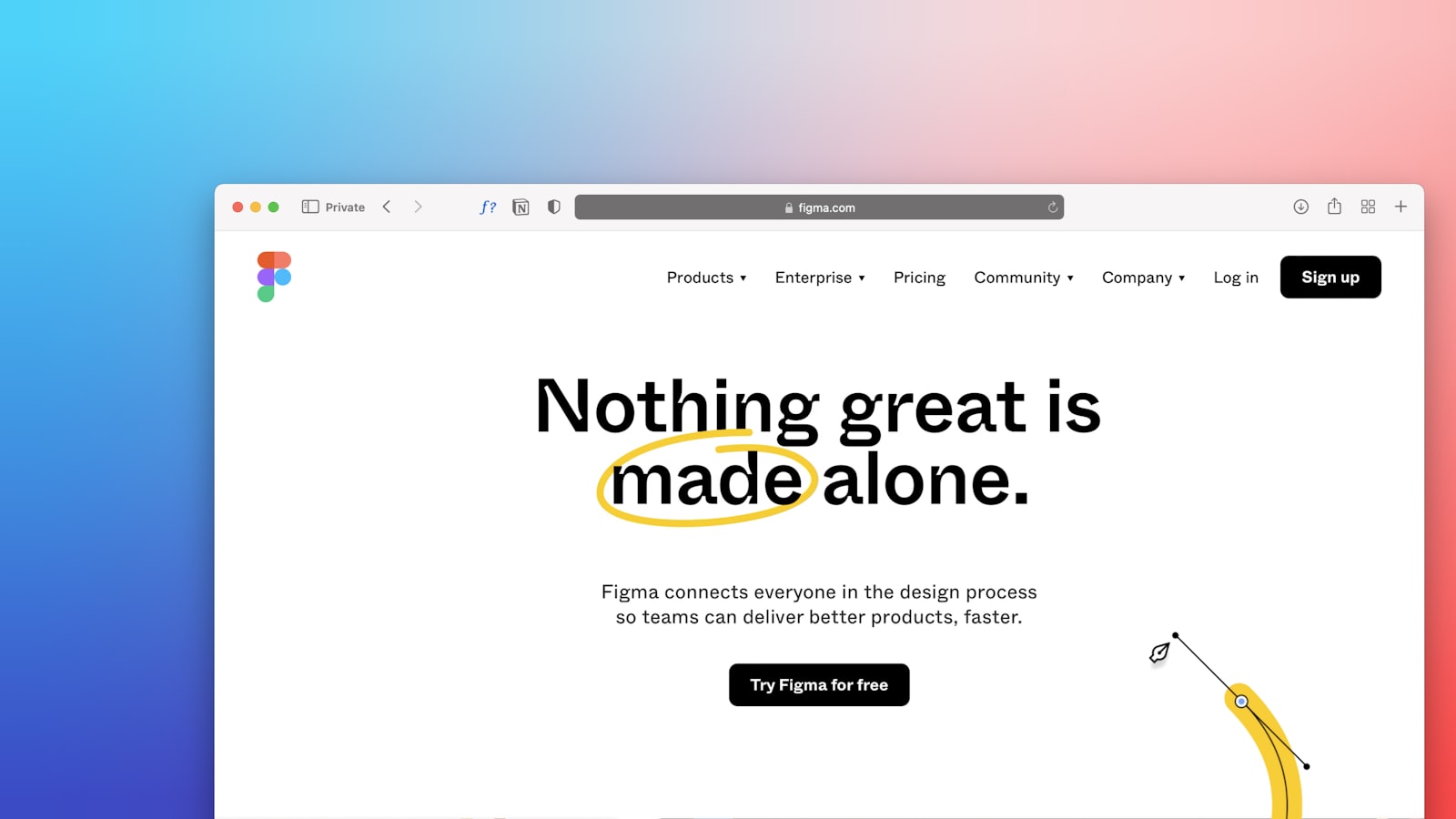25 Essential Sales Acronyms Every Professional Should Know
25 Essential Sales Acronyms Every Professional Should Know
25 Essential Sales Acronyms Every Professional Should Know
Discover the top 25 sales acronyms every professional should know to boost your sales strategy and communication skills. Stay ahead in the sales game!
Discover the top 25 sales acronyms every professional should know to boost your sales strategy and communication skills. Stay ahead in the sales game!



Introduction
Ever found yourself drowning in a sea of sales acronyms, feeling like you're deciphering a secret code? You're not alone. Whether you're a seasoned pro or a newbie in the sales game, understanding these acronyms is crucial for your survival and success. Imagine being in a meeting, and someone drops BANT or SQL – you don't want to be the deer in headlights, right?
Welcome to the ultimate cheat sheet: 25 Essential Sales Acronyms Every Professional Should Know. This comprehensive guide will turn you from acronym amateur to aficionado. We'll break down each term, provide examples, and offer practical tips on how to use them in your daily sales grind. No more nodding along cluelessly – it's time to speak the language of sales fluently and confidently.
So, grab a coffee, sit back, and let's get acronym-savvy. Because, trust me, knowing your ABCs (Always Be Closing) is just the beginning.
Why Sales Acronyms Matter

Streamlining Communication
Imagine trying to decode a sales report filled with jargon you don't understand. Sales acronyms like MRR (Monthly Recurring Revenue) or CAC (Customer Acquisition Cost) help streamline communication. They allow team members to quickly grasp complex concepts without lengthy explanations.
For instance, when discussing lead generation strategies, using acronyms like MQL (Marketing Qualified Lead) and SQL (Sales Qualified Lead) ensures everyone is on the same page. This common language reduces misunderstandings and speeds up decision-making processes.
Enhancing Productivity
Sales professionals are always on the clock. Acronyms save valuable time by condensing lengthy phrases into bite-sized terms. For example, instead of saying Annual Recurring Revenue, you can simply say ARR. This efficiency extends to written communication as well, making emails and reports more concise.
Moreover, using acronyms consistently can improve the accuracy of data entry in CRM systems. When everyone uses the same shorthand, it minimizes errors and ensures that data is entered correctly, leading to more reliable analytics.
Improving Sales Strategies
Understanding acronyms is not just about saving time; it's also about optimizing your sales strategies. Metrics like CLV (Customer Lifetime Value) and NPS (Net Promoter Score) provide critical insights into customer behavior and satisfaction. These metrics help sales teams tailor their approaches to maximize revenue and customer retention.
For example, knowing your CLV can guide decisions on how much to spend on customer acquisition. If your CAC is higher than your CLV, it's time to rethink your strategy. Similarly, a low NPS may indicate issues with customer satisfaction that need immediate attention.
In summary, sales acronyms are more than just shorthand; they are essential tools for effective communication, enhanced productivity, and strategic planning. By mastering these terms, you can significantly improve your sales operations and outcomes.
Introduction
Ever found yourself drowning in a sea of sales acronyms, feeling like you're deciphering a secret code? You're not alone. Whether you're a seasoned pro or a newbie in the sales game, understanding these acronyms is crucial for your survival and success. Imagine being in a meeting, and someone drops BANT or SQL – you don't want to be the deer in headlights, right?
Welcome to the ultimate cheat sheet: 25 Essential Sales Acronyms Every Professional Should Know. This comprehensive guide will turn you from acronym amateur to aficionado. We'll break down each term, provide examples, and offer practical tips on how to use them in your daily sales grind. No more nodding along cluelessly – it's time to speak the language of sales fluently and confidently.
So, grab a coffee, sit back, and let's get acronym-savvy. Because, trust me, knowing your ABCs (Always Be Closing) is just the beginning.
Why Sales Acronyms Matter

Streamlining Communication
Imagine trying to decode a sales report filled with jargon you don't understand. Sales acronyms like MRR (Monthly Recurring Revenue) or CAC (Customer Acquisition Cost) help streamline communication. They allow team members to quickly grasp complex concepts without lengthy explanations.
For instance, when discussing lead generation strategies, using acronyms like MQL (Marketing Qualified Lead) and SQL (Sales Qualified Lead) ensures everyone is on the same page. This common language reduces misunderstandings and speeds up decision-making processes.
Enhancing Productivity
Sales professionals are always on the clock. Acronyms save valuable time by condensing lengthy phrases into bite-sized terms. For example, instead of saying Annual Recurring Revenue, you can simply say ARR. This efficiency extends to written communication as well, making emails and reports more concise.
Moreover, using acronyms consistently can improve the accuracy of data entry in CRM systems. When everyone uses the same shorthand, it minimizes errors and ensures that data is entered correctly, leading to more reliable analytics.
Improving Sales Strategies
Understanding acronyms is not just about saving time; it's also about optimizing your sales strategies. Metrics like CLV (Customer Lifetime Value) and NPS (Net Promoter Score) provide critical insights into customer behavior and satisfaction. These metrics help sales teams tailor their approaches to maximize revenue and customer retention.
For example, knowing your CLV can guide decisions on how much to spend on customer acquisition. If your CAC is higher than your CLV, it's time to rethink your strategy. Similarly, a low NPS may indicate issues with customer satisfaction that need immediate attention.
In summary, sales acronyms are more than just shorthand; they are essential tools for effective communication, enhanced productivity, and strategic planning. By mastering these terms, you can significantly improve your sales operations and outcomes.
Introduction
Ever found yourself drowning in a sea of sales acronyms, feeling like you're deciphering a secret code? You're not alone. Whether you're a seasoned pro or a newbie in the sales game, understanding these acronyms is crucial for your survival and success. Imagine being in a meeting, and someone drops BANT or SQL – you don't want to be the deer in headlights, right?
Welcome to the ultimate cheat sheet: 25 Essential Sales Acronyms Every Professional Should Know. This comprehensive guide will turn you from acronym amateur to aficionado. We'll break down each term, provide examples, and offer practical tips on how to use them in your daily sales grind. No more nodding along cluelessly – it's time to speak the language of sales fluently and confidently.
So, grab a coffee, sit back, and let's get acronym-savvy. Because, trust me, knowing your ABCs (Always Be Closing) is just the beginning.
Why Sales Acronyms Matter

Streamlining Communication
Imagine trying to decode a sales report filled with jargon you don't understand. Sales acronyms like MRR (Monthly Recurring Revenue) or CAC (Customer Acquisition Cost) help streamline communication. They allow team members to quickly grasp complex concepts without lengthy explanations.
For instance, when discussing lead generation strategies, using acronyms like MQL (Marketing Qualified Lead) and SQL (Sales Qualified Lead) ensures everyone is on the same page. This common language reduces misunderstandings and speeds up decision-making processes.
Enhancing Productivity
Sales professionals are always on the clock. Acronyms save valuable time by condensing lengthy phrases into bite-sized terms. For example, instead of saying Annual Recurring Revenue, you can simply say ARR. This efficiency extends to written communication as well, making emails and reports more concise.
Moreover, using acronyms consistently can improve the accuracy of data entry in CRM systems. When everyone uses the same shorthand, it minimizes errors and ensures that data is entered correctly, leading to more reliable analytics.
Improving Sales Strategies
Understanding acronyms is not just about saving time; it's also about optimizing your sales strategies. Metrics like CLV (Customer Lifetime Value) and NPS (Net Promoter Score) provide critical insights into customer behavior and satisfaction. These metrics help sales teams tailor their approaches to maximize revenue and customer retention.
For example, knowing your CLV can guide decisions on how much to spend on customer acquisition. If your CAC is higher than your CLV, it's time to rethink your strategy. Similarly, a low NPS may indicate issues with customer satisfaction that need immediate attention.
In summary, sales acronyms are more than just shorthand; they are essential tools for effective communication, enhanced productivity, and strategic planning. By mastering these terms, you can significantly improve your sales operations and outcomes.
Need help with SEO?
Need help with SEO?
Need help with SEO?
Join our 5-day free course on how to use AI to get more traffic to your website!
Explode your organic traffic and generate red-hot leads without spending a fortune on ads
Claim the top spot on search rankings for the most lucrative keywords in your industry
Cement your position as the undisputed authority in your niche, fostering unshakable trust and loyalty
Skyrocket your conversion rates and revenue with irresistible, customer-centric content
Conquer untapped markets and expand your reach by seizing hidden keyword opportunities
Liberate your time and resources from tedious content tasks, so you can focus on scaling your business
Gain laser-sharp insights into your ideal customers' minds, enabling you to create products and content they can't resist
Harness the power of data-driven decision-making to optimize your marketing for maximum impact
Achieve unstoppable, long-term organic growth without being held hostage by algorithm updates or ad costs
Stay light-years ahead of the competition by leveraging cutting-edge AI to adapt to any market shift or customer trend
Explode your organic traffic and generate red-hot leads without spending a fortune on ads
Claim the top spot on search rankings for the most lucrative keywords in your industry
Cement your position as the undisputed authority in your niche, fostering unshakable trust and loyalty
Skyrocket your conversion rates and revenue with irresistible, customer-centric content
Conquer untapped markets and expand your reach by seizing hidden keyword opportunities
Liberate your time and resources from tedious content tasks, so you can focus on scaling your business
Gain laser-sharp insights into your ideal customers' minds, enabling you to create products and content they can't resist
Harness the power of data-driven decision-making to optimize your marketing for maximum impact
Achieve unstoppable, long-term organic growth without being held hostage by algorithm updates or ad costs
Stay light-years ahead of the competition by leveraging cutting-edge AI to adapt to any market shift or customer trend
Explode your organic traffic and generate red-hot leads without spending a fortune on ads
Claim the top spot on search rankings for the most lucrative keywords in your industry
Cement your position as the undisputed authority in your niche, fostering unshakable trust and loyalty
Skyrocket your conversion rates and revenue with irresistible, customer-centric content
Conquer untapped markets and expand your reach by seizing hidden keyword opportunities
Liberate your time and resources from tedious content tasks, so you can focus on scaling your business
Gain laser-sharp insights into your ideal customers' minds, enabling you to create products and content they can't resist
Harness the power of data-driven decision-making to optimize your marketing for maximum impact
Achieve unstoppable, long-term organic growth without being held hostage by algorithm updates or ad costs
Stay light-years ahead of the competition by leveraging cutting-edge AI to adapt to any market shift or customer trend


































































































































































































































































































































